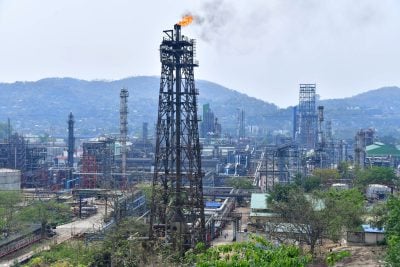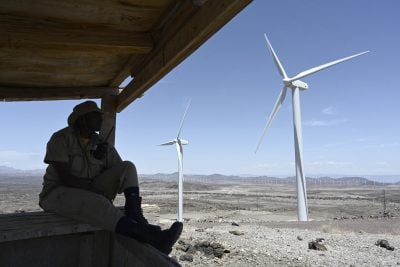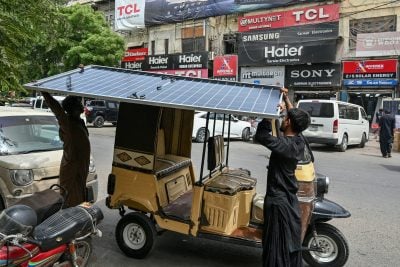Nigeria has shown serious commitment to and active participation in the global conversation on climate change. It was part of the landmark Paris Agreement of December 2015, made during the 21st Conference of Parties to the United Nations Framework Convention on Climate Change (COP21).
In November 2016, many nations gathered at COP22 in the Moroccan city of Marrakesh to put the 2015 Paris Agreement into action. The conference was successful, and Nigeria has continued to show its unwavering commitments through several sustainability initiatives and the promotion of renewable energy use at home.
In Paris, Nigeria adopted the unconditional reduction of carbon emissions by 20% before 2030 and has since acted to back this commitment through the implementation of policies meant to increase the contribution of renewable energy to the country’s energy mix. In July 2016, it signed 14 power purchase agreements with utility-scale solar power developers, projected to bring about 1,200MW to the grid.
Earlier in 2015 it reformed renewable power generation policies to enhance deal flows and investments and recently announced a $3bn energy modernisation fund geared to improve efficiency and the use of energy sources such as liquefied petroleum gas (LPG). The programme will reportedly increase energy access in rural and semi-urban areas from 35% to 75%.
Power crisis
In spite of this, Nigeria seems ambivalent on its climate change commitments. Some observers say this is excusable. Nigeria is a country in dire need of power – of the current estimated electricity demand of 12,000MW, only a meagre 3,000MW is generated.
This is a far cry from the 40,000MW the Ministry of Power estimates are required to sustain planned industrialisation projects. The power crisis in Nigeria – which has crippled manufacturing and stifled small businesses – seems to be a compelling case for the so-called “All Options” plan, which implies the inclusion of dirty energy sources such as coal, gas and oil in the country’s energy mix. This is the stain on Nigeria’s clean energy conscience.
In August 2016, Nigeria’s minister of power, Babatunde Fashola, said at a meeting in Lagos: “Our ministry has recently publicised our energy mix and coal forms a large part of our target fuel source. I am pleased to say that the Nigerian Bulk Electricity Trading Plc (NBET) is working on a suitable tariff for coal-to-power that will form the basis of a power purchase agreement (PPA).”
This coal power development plan falls short of the expectations of climate campaigners. However, for a country of 190m people, whose economic mainstay is oil and gas – which contributes about 85% of government earnings – executing climate change actions might well be an ambivalent project. Nigeria’s power crisis is widely recognised as a major limitation on its economic growth, just as the World Bank projects that poor access to power reduces GDP growth by 2–4% across sub-Saharan Africa.
Is there a compelling case for coal?
Christine K is the Nigeria country director for the Heinrich Böll Foundation, a global advocate of green ideas. She says of Nigeria’s coal ambitions: “We must caution against the continued use of coal due to its environmental implications. At the moment, developing a coal plant could be as expensive as solar but when you add numerous environmental costs the comparison becomes favourable to solar.”
In 2016, France and the Netherlands announced plans to shut all coal-fired plants, in what many observers consider commendable steps in the fight against global warming. Such developments are often cited as examples that nations such as Nigeria should emulate. However, Nigeria could argue that while it is in a power development crisis, nations like France and the Netherlands have attained power sufficiency and can afford to be selective in the solutions they deploy.
For Nigeria and other nations in Africa the so-called “compelling case” for developing dirty power sources threatens to erode sincere commitments to combat climate change. Christine K says “Coal is no longer attractive both from economic and environmental perspectives. However, I hope that the debate in Nigeria doesn’t become polarised, given the country’s need to generate sufficient power from diverse sources. The more reasonable question should be how much coal should Nigeria generate?”
In October 2016, during an IMF/World Bank meeting in Washington DC, Nigerian minister of finance Kemi Adeosun said: “We want to build a coal power plant because we are a country blessed with coal, yet we have a power problem … However, we’ve been blocked because it is not green.” She argued that the West could be seen as being hypocritical if Nigeria’s strong economic and development case for coal power is not understood.
Nigeria’s challenge
Nigeria is a resource-rich country with high poverty levels, which makes it susceptible to the adverse effects of climate change. In parts of the north, climate change is already a threat to livelihoods, due to deforestation and drought.
Lagos is Nigeria’s commercial nerve centre and a classic case study for the future impact of climate change on cities in Africa. As a coastal city, it is vulnerable to the global rise in sea level, while increased rainfall and storms have also contribute to flooding.
With a glaring vulnerability to global warming, some commendable commitments to carbon emission reduction, but a rather ambivalent posture on the use of coal power, the world could place even greater expectations on Nigeria to lead Africa in sustainable development and clean energy. Will the country live up to it?
Chijioke Mama
Want to continue reading? Subscribe today.
You've read all your free articles for this month! Subscribe now to enjoy full access to our content.
Digital Monthly
£8.00 / month
Receive full unlimited access to our articles, opinions, podcasts and more.
Digital Yearly
£70.00 / year
Our best value offer - save £26 and gain access to all of our digital content for an entire year!
 Sign in with Google
Sign in with Google 


